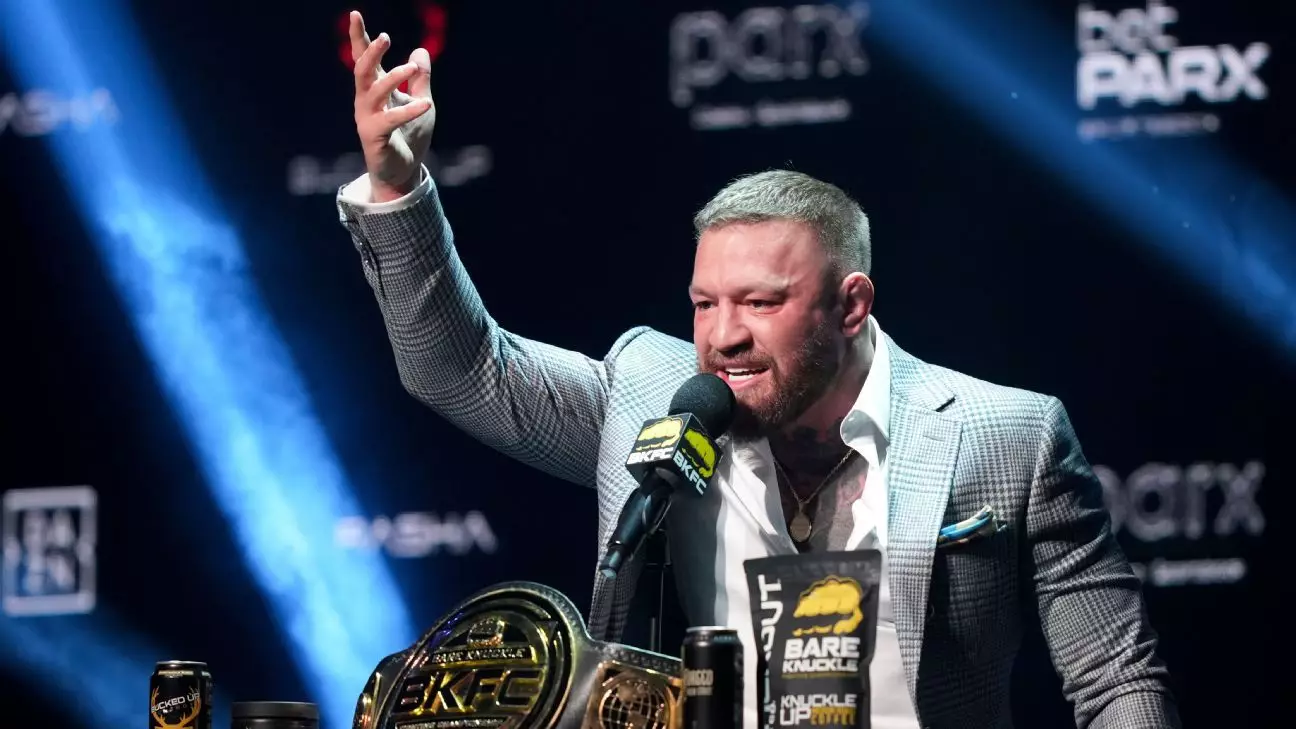Conor McGregor, the controversial figure in mixed martial arts, expressed his desire to face social media sensation Logan Paul in an exhibition boxing bout in India this year. However, the UFC, his professional home, was not willing to greenlight this matchup, leaving McGregor disappointed and seeking answers. In a recent interview, McGregor conveyed his frustration, suggesting that the fight was not just a mere exhibition but a lucrative opportunity that the UFC missed. His enthusiasm for the match was palpable, as he viewed it as a perfect intersection of entertainment and business, especially with the emerging market in India.
Despite McGregor’s public enthusiasm for the fight, UFC’s disinterest raises questions about the organization’s approach to managing its high-profile athletes. McGregor referred to the proposed matchup as a “glorified spar,” indicating that while it may not carry the competitive weight of a traditional fight, it could still draw significant audience interest and revenue. The UFC’s reluctance may stem from a desire to protect their brand’s integrity, but it also demonstrates a potential miscalculation regarding fan engagement and market expansion. The clash of personalities between McGregor and Paul could have attracted not just MMA fans but also a wider audience drawn to the spectacle of two high-drawing personalities facing off.
McGregor pointed out that the timing of the proposed matchup made perfect sense, given that he is currently sidelined due to injuries sustained in previous bouts. He compared this opportunity to his past high-profile boxing match against Floyd Mayweather, which was a financial boon for all parties involved. With TKO Group Holdings experiencing a surge in stock price, McGregor argued that facilitating this fight would have been a savvy business move, leveraging the popularity of both fighters to capture an emerging market. His commentary raises important points about how promotional companies like the UFC and WWE can harness the popularity of cross-industry engagements to boost their brand.
As another layer of complexity, McGregor’s recent legal troubles also loom over his career. Found liable for a sexual assault case, with a hefty financial judgment against him, the fighter’s return to the ring remains clouded. This development might have also influenced the UFC’s reluctance to engage in further publicity surrounding McGregor’s endeavors outside the octagon, especially in an exhibition with a controversial figure like Logan Paul. Despite these setbacks, McGregor remains resolute in his pursuit of boxing and his ambition to engage in a potential match with Paul, viewing the financial rewards as too significant to ignore.
Ultimately, McGregor’s aspirations reflect a broader cultural shift within sports entertainment where the lines between traditional sports and influencer-driven content are increasingly blurred. As the landscape evolves, athletes like McGregor are exploring non-traditional avenues to sustain their brand and income. The potential for staggering profits in these cross-genre matchups cannot be overlooked, highlighting an ongoing battle between traditional sports institutions and the rising influence of digital figures. As McGregor continues to seek opportunities, both in UFC and beyond, it remains to be seen how his relationship with these organizations will evolve in the face of new financial realities.


Leave a Reply